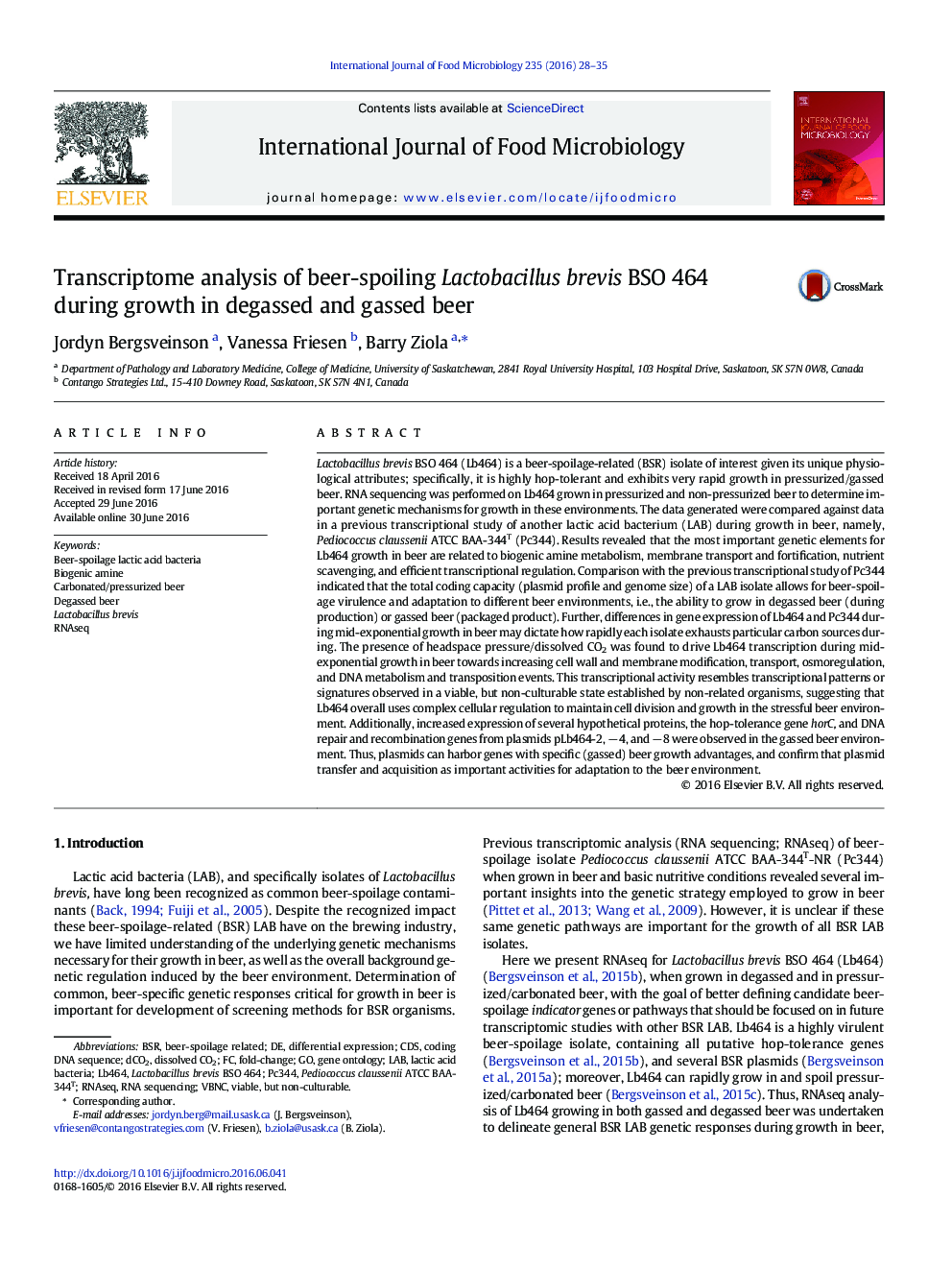| کد مقاله | کد نشریه | سال انتشار | مقاله انگلیسی | نسخه تمام متن |
|---|---|---|---|---|
| 4366158 | 1616548 | 2016 | 8 صفحه PDF | دانلود رایگان |

• L. brevis BSO 464 growth in gassed beer transcriptionally resembles a VBNC state.
• Transcription from plasmids are important for growth in degassed and gassed beer.
• Bacterial production of biogenic amines in beer is transcriptionally confirmed.
Lactobacillus brevis BSO 464 (Lb464) is a beer-spoilage-related (BSR) isolate of interest given its unique physiological attributes; specifically, it is highly hop-tolerant and exhibits very rapid growth in pressurized/gassed beer. RNA sequencing was performed on Lb464 grown in pressurized and non-pressurized beer to determine important genetic mechanisms for growth in these environments. The data generated were compared against data in a previous transcriptional study of another lactic acid bacterium (LAB) during growth in beer, namely, Pediococcus claussenii ATCC BAA-344T (Pc344). Results revealed that the most important genetic elements for Lb464 growth in beer are related to biogenic amine metabolism, membrane transport and fortification, nutrient scavenging, and efficient transcriptional regulation. Comparison with the previous transcriptional study of Pc344 indicated that the total coding capacity (plasmid profile and genome size) of a LAB isolate allows for beer-spoilage virulence and adaptation to different beer environments, i.e., the ability to grow in degassed beer (during production) or gassed beer (packaged product). Further, differences in gene expression of Lb464 and Pc344 during mid-exponential growth in beer may dictate how rapidly each isolate exhausts particular carbon sources during. The presence of headspace pressure/dissolved CO2 was found to drive Lb464 transcription during mid-exponential growth in beer towards increasing cell wall and membrane modification, transport, osmoregulation, and DNA metabolism and transposition events. This transcriptional activity resembles transcriptional patterns or signatures observed in a viable, but non-culturable state established by non-related organisms, suggesting that Lb464 overall uses complex cellular regulation to maintain cell division and growth in the stressful beer environment. Additionally, increased expression of several hypothetical proteins, the hop-tolerance gene horC, and DNA repair and recombination genes from plasmids pLb464-2, − 4, and − 8 were observed in the gassed beer environment. Thus, plasmids can harbor genes with specific (gassed) beer growth advantages, and confirm that plasmid transfer and acquisition as important activities for adaptation to the beer environment.
Journal: International Journal of Food Microbiology - Volume 235, 17 October 2016, Pages 28–35